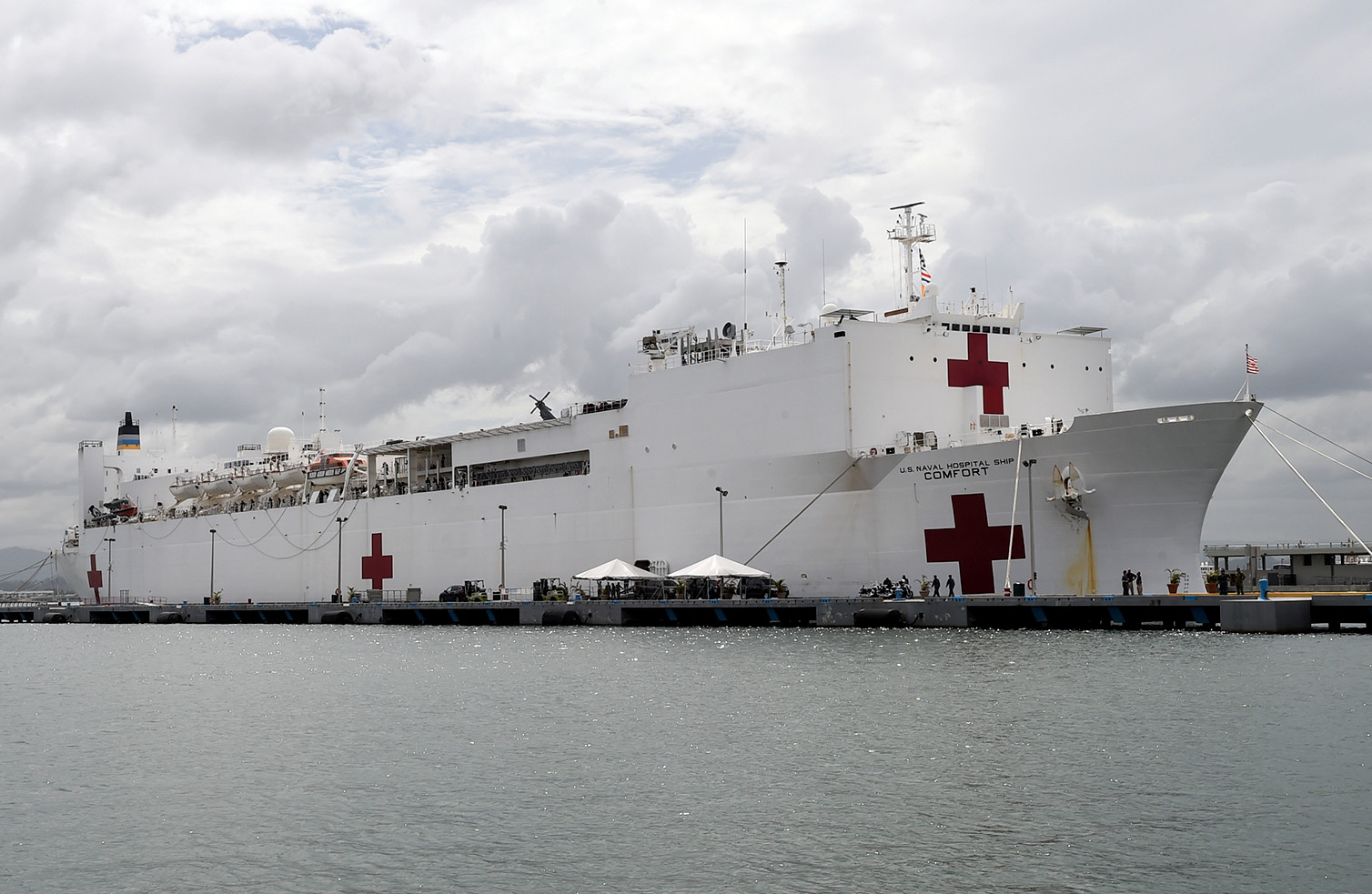The USNS Comfort is a floating medical facility whose primary mission is to serve as a role 3 combat support hospital. It has also often been used in U.S. disaster relief and humanitarian operations around the world. In September 2017, the ship was sent as part of the federal joint response to provide support to the Puerto Rican health system after Hurricane Maria with a crew of over 950 uniformed naval hospital staff and civilian mariners. The crew included a U.S. Navy mental health team consisting of a psychiatrist, a psychologist, four psychiatric nurses, and three behavioral health technicians. This team provided inpatient and outpatient mental health services for Puerto Rican citizens and Department of Defense and federal employees for the duration of the USNS Comfort’s mission.
Patients with severe and persistent mental illnesses, such as schizophrenia, bipolar disorder, and severe major depressive disorder, are among the most vulnerable when natural disasters disrupt infrastructure. Hurricane Maria had a significant impact on this population in Puerto Rico, reducing their access to outpatient psychiatric services, causing severe damage to low-income and supportive housing, and leaving many individuals with psychiatric illness with reduced access to medical and psychiatric care. The mental health team aboard the USNS Comfort developed protocols and educational tools to train the staff on medical wards in the treatment of psychiatric patients. The team evaluated, diagnosed, and treated 35 patients with various diagnoses, including schizophrenia, bipolar disorder, and severe major depression. Most were transferred to supportive housing or civilian inpatient units in the area, all without any incidents of agitation or self-harm. Establishing contacts with social service agencies and physicians in San Juan was instrumental in reconnecting these vulnerable individuals to their medical system.
The mental health team aboard the USNS Comfort was also consulted on a number of occasions by the medical and surgical services to assist in the management of delirium, exacerbated by the lack of windows in the ship’s hospital wards, and worsened further while the ship was moving. Team members provided verbal redirection to patients with dementia and on one occasion accompanied a patient with dementia aboard a helicopter while the patient was being moved from the ship to a Puerto Rican hospital. This allowed the patient to remain calm and oriented without the use of antipsychotics or sedating agents.
The mental health team treated reactions to circumstances often associated with disaster responses—the loss of homes, jobs, electricity, water, and in some cases, lives. They also provided comprehensive treatment for patients with severe and persistent mental illnesses, whose access to treatment was severely disrupted. The presence of a robust mental health team provided crucial services to the citizens of Puerto Rico while the damage to their medical infrastructure was being repaired. The experience aboard the USNS Comfort in Puerto Rico highlights the importance of hospital-based psychiatric services in humanitarian response missions.


